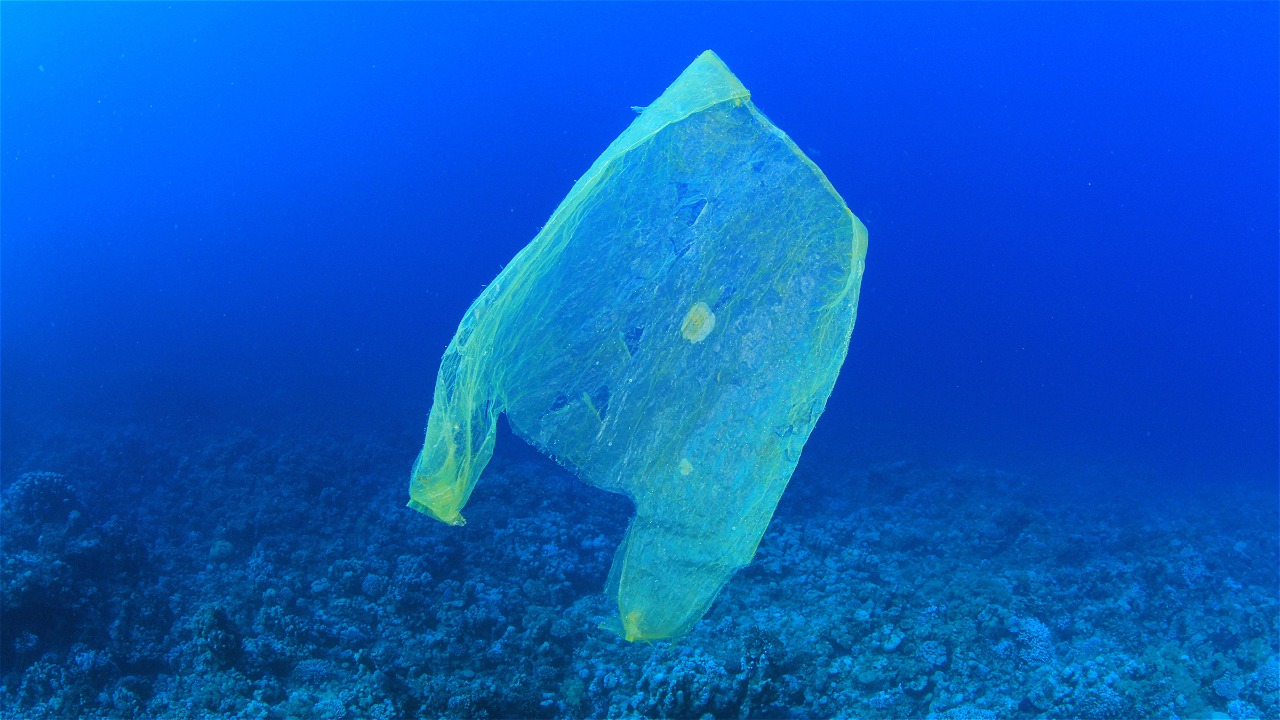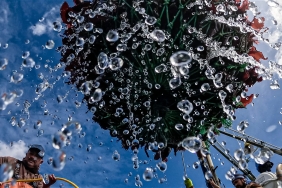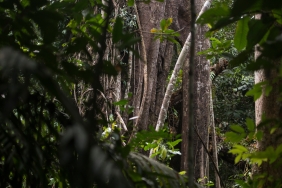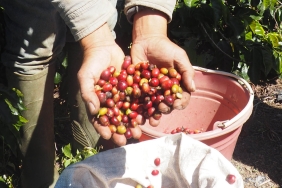MARINE RUBBISH AND DEBRIS
Marine debris (or marine litter) is defined as any persistent, manufactured or processed solid material discarded, disposed of or abandoned in the marine and coastal environment 1.
Common items of marine debris include plastic bottles, fishing nets, food packaging, crates, cigarette butts, gloves, buckets, rope, fishing gear, packing materials, light globes and plastic bags.
Marine debris is harmful to marine life, most notably protected species of birds, sharks, turtles and marine mammals. Marine debris may cause injury or death from drowning, injury through entanglement, and internal injuries or starvation following ingestion.
Seabirds entangled in marine debris lose their ability to move quickly through the water, reducing their ability to catch prey and avoid predators. Constricted circulation can lead to asphyxiation and death.
Fishing line debris, nets and ropes cut into the skin of marine mammals or turtles, leading to infection or the amputation of flippers, tails and flukes.
Plastic garbage, which decomposes very slowly, is often mistaken for food by marine animals. High concentrations of plastic material, particularly plastic bags, have been found blocking the breathing passages and stomachs of many marine species, including whales, dolphins, seals, puffins, and turtles. Plastic six-pack rings for drink bottles can also choke marine animals.
Marine species commonly confuse plastic bags, rubber, balloons and confectionery wrappers for prey and swallow them. Turtles, in particular, mistake plastic bags for jellyfish, and seabirds eat polystyrene balls and plastic buoys thinking they are fish eggs. This debris can then cause blockages in the animal’s digestive system.
We can all play a part in reducing marine rubbish and debris by:
- taking care to dispose of our litter responsibly. When visiting coastal areas, take your rubbish home to ensure that bins provided do not overflow
- not disposing of any pollutants in the marine or coastal environment
- avoiding the use of fertilisers or use them responsibly. Follow the instructions on the product and do not over-fertilise; anything excess to your lawn or plants’ needs is likely to run-off into our coastal and marine environments
- minimising the use of chemicals around your home. For instance, paving cleaners contain chemicals that will ultimately run-off your property and into the natural environment
- helping to clean up our oceans and coastlines. Better still, organise for your local school or community group to clean up your local beach.
Solid garbage also makes its way to the ocean. Plastic bags, balloons, glass bottles, shoes, packaging material – if not disposed of correctly, almost everything we throw away can reach the sea.
This garbage can also come back to shore, where it pollutes beaches and other coastal habitats.





